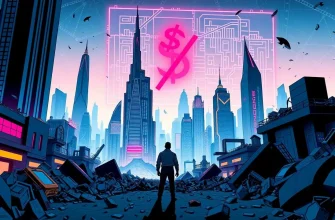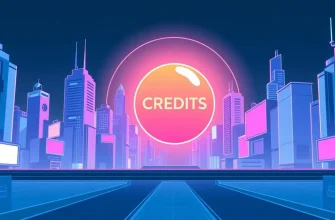This collection of sci-fi films delves into the theme of debt, exploring how financial obligations can shape futures, societies, and personal destinies. These movies offer a fascinating look at the intersection of technology, economics, and human nature, providing not only entertainment but also a deeper reflection on our societal structures and personal values.

Brazil (1985)
Description: This dystopian satire features a bureaucratic society where citizens are in constant debt to the system, both financially and in terms of personal freedom.
Fact: The film's production was famously troubled, with director Terry Gilliam clashing with Universal Studios over the film's length and content.
 Watch Now
Watch Now 
Gattaca (1997)
Description: In a genetically engineered society, those born naturally are at a disadvantage, living in a form of debt to their genetic "superiors."
Fact: The film's title is derived from the four nitrogenous bases of DNA: guanine, adenine, thymine, and cytosine.
 Watch Now
Watch Now 
The Matrix (1999)
Description: While not directly about debt, the film's premise involves humans being used as energy sources, essentially living in a form of debt to machines for their existence.
Fact: The Wachowskis developed the concept for "The Matrix" over several years, initially pitching it as a comic book.
 Watch Now
Watch Now 
Equilibrium (2002)
Description: In a dystopian future, citizens must take drugs to suppress emotions, but this control comes at a cost, with debt being a form of control over the populace.
Fact: The film was shot in Berlin, Germany, to take advantage of the city's architecture, which helped to create the film's oppressive atmosphere.
 Watch Now
Watch Now 
The Island (2005)
Description: Clones are raised to believe they are living in a utopia, but they are actually in debt to their creators, who use them for organ harvesting and other purposes.
Fact: The film was originally conceived as a sequel to "The Matrix," but it evolved into its own story.
 Watch Now
Watch Now 
Repo Men (2010)
Description: In a future where artificial organs can be bought on credit, a repo man who repossesses organs when people default on payments finds himself in debt after an accident.
Fact: The film was inspired by the novel "The Repossession Mambo" by Eric Garcia. The original script was much darker and more violent.
 Watch Now
Watch Now 
The Adjustment Bureau (2011)
Description: The film explores the idea of fate and free will, where characters might be in debt to a higher power or organization for their life choices.
Fact: The film is based on a short story by Philip K. Dick, known for his explorations of reality and control.
 Watch Now
Watch Now 
Elysium (2013)
Description: Set in a future where the rich live on a space station while the poor are left on a ruined Earth, the film touches on themes of economic disparity and the debt of the underprivileged.
Fact: The film's production design was inspired by real-world slum conditions, particularly those in Johannesburg, South Africa.
 Watch Now
Watch Now 
In Time (2011)
Description: In a world where time is money, literally, people must work to earn more time to live. The film explores the concept of time as currency and the debt that comes with it.
Fact: The film's director, Andrew Niccol, also wrote the screenplay for "The Truman Show," another film with a unique societal structure.
 Watch Now
Watch Now 
The Purge: Election Year (2016)
Description: While not directly about debt, the annual Purge event can be seen as a societal debt payment, where citizens pay for their freedom with one night of lawlessness.
Fact: The Purge series was inspired by real-world discussions about crime and punishment in the U.S.
 Watch Now
Watch Now 








